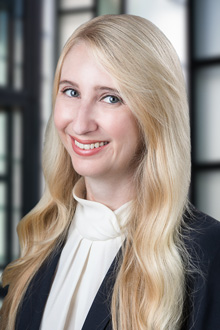Here is a new opinion that has a good summary on the standards for medical expert testimony and the “more probable than not” rule for medical causation.
On January 28, 2019, the Court of Appeal, Second Appellate District, Division Eight (LA), issue an opinion in Victoria Fernandez v. Charles Alexander (Jan. 28, 2019, B283949) __Cal.App.5th__ [2019 Cal.App. Lexis 17], affirming summary judgment on causation grounds and holding that an expert opinion that is merely conclusory is insufficient to raise a triable issue of material fact. The case establishes that when an expert declaration is all sound and fury, without a factual basis, summary judgment will be affirmed.
Plaintiff fell and fractured her wrist, which was placed in a splint cast by the emergency room. (Slip. opn., p. 3.) She was then referred to defendant doctor who examined her wrist and recommended that the wrist be placed in a cast. (Ibid.) Plaintiff sued defendant for professional negligence alleging that her wrist was improperly cast. (Id. at p. 5.) Defendant moved for summary judgment contending that the treatment was within the standard of care and that no act or omission on his part caused plaintiff’s injuries. (Ibid.) In support, defendant submitted expert testimony from a board-certified orthopedic surgeon specializing in hand and wrist surgery. (Id. at p. 6.) Plaintiff submitted an opposing expert declaration opining essentially that defendant’s conduct fell below the standard of care and caused the injury. (Id. at pp. 7-8.) Defendant objected to the plaintiff’s expert declaration stating that the expert’s opinion failed to create a triable issue of material fact as the declaration provided no basis for the opinion, lacked foundation and was thus irrelevant. (Id. at p. 9.) The trial court ruled that although plaintiff raised a triable issue of material fact regarding the standard of care, plaintiff did not meet her burden of production on causation, and granted defendant’s motion. (Ibid.) Plaintiff appealed.
Relying on Bozzi v. Nordstrom, Inc. (2010) 186 Cal.App.4th 755, 761, the appellate court emphasized that the same rules of evidence applicable at trial also apply to expert declarations submitted in support of a motion for summary judgment. (Slip opn., p. 12.) Declarations must show the declarant’s personal knowledge and competency to testify, state facts and not just conclusions, and not include inadmissible hearsay or opinion.” (Ibid., quoting Bozzi, at p. 761.) That a court is required to liberally construe the opposing declaration does not mean that the court may relax these rules of evidence. (Slip opn., p. 12.) The appellate court found that plaintiff’s expert was competent to opine on the causation issue, but “did not do so in the manner required for the admissibility of an expert opinion.” (Id. at p. 15.) Plaintiff’s expert offered no “reasoned explanation connecting the factual predicates to the ultimate conclusion.” (Id. at p. 16.) As the principles of liberal construal did not “eliminate the need for some form of ‘reasoned explanation,’” plaintiff’s expert declaration did not constitute admissible evidence sufficient to controvert defendant’s evidence that causation could not be established. (Id. at p. 17.)
